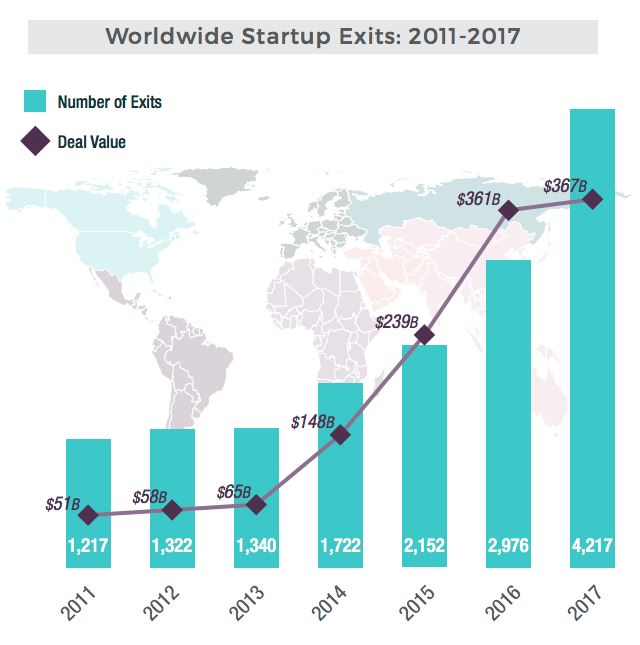
What Is the Difference Between a Startup and a Small Business?
A new business and startup are the same, right? Wrong, so what is a startup business?
When it comes to businesses it’s not all black and white, they come in a variety of shapes, colors and sizes including; corporations, multinational companies, PLCs, LTDs SMBs and startups to name a few. If you’re raising an eyebrow right now, you’re not alone in thinking aren’t they all basically the same thing? And what actually is the difference between startup and big companies?
The truth is, all of these categories, especially startups and small businesses are often confused, so we’re here to cut the fluff and get down to the key differences and what those differences mean for each in terms of funding. Unbeknown to most, different categories will have very different options when it comes to financing options and growth…
What is a startup business?
First things first, what is a startup and how is it defined? (Whether or not you use the hyphen as ‘start-up’ or without is another big debate without a universally accepted answer).
What is a Startup: a company in the first stage of its operations, offering a product or service that is currently not offered elsewhere in the market, or that the founders believe they can offer in a superior manner to impact the current market.
A startup is not just a smaller or newer version of a larger company but as defined nicely by Neil Blumenthal, it is “a company working to solve a problem where the solution is not obvious and success is not guaranteed”. Examples of successful startups you may have heard of include Trello, Uber, Slack and Craigslist – all of which solve very real problems for their users.
The number of startups continues to rise worldwide, evident when looking at the number of global startup exits which are rapidly growing. See the graph below taken from TechCrunch highlighting startup exits worldwide are on the rise (especially following a big jump in 2014) which implies that the interest in startups is still going strong.

The difference between a startup and a small business:
Now we know what a startup is, let’s define a small business to get the difference down once and for all.
Small Business = an “independently owned and operated, organized for profit, and not dominant in its field.” (as defined by the SBA). The intent of a small business is to simply be a small business owner, to be his or her own boss and take a place in the local market.
So what’s the difference between startup and business owners?
1. More than just a boss
The main difference between startup and small business owners is that an entrepreneur opening a startup doesn’t just simply want to be their own boss and slide into the local market, but wants to disrupt the market and essentially be the next big thing. This could mean taking customers from existing markets or perhaps even starting a whole new one of its own.
2. Funding
Both startups and small businesses may start with funding from the founder’s savings, family, a bank loan or business loans and if a startup becomes successful, it will move onto receiving more funding in a series of rounds from investors, VC firms, angel investors. The growth of a startup plays a huge role in securing funding, but that’s not usually the case for small businesses.
Small businesses can get their hands on funding much easier. For a small business seeking a business loan, check out Become. With over 30 partners, it can match your business with offers you can qualify with.
If you’re not sure what type of funding is right for your business, be sure to check out this guide to business lending.
3. Risk
Startups tend to be a lot riskier than their small business counterparts. Startups tend to involve far more dedication and investment (in every sense of the word) yet also have a higher chance of failure. And while small businesses also contain a risk element, there is one key factor that makes them less risky than startups; they tend to have proven business models to work off of and are not super focused on fast growth. Startups are often starting something very new and run the risk of over-inflating too soon due to their fast growth.
4. Business growth
This is another big difference between small businesses and startups. While startups are designed for fast and steady growth to secure more investors and rounds of funding for each stage of growth. This is not to say that small businesses don’t also focus on fast and steady growth, it’s just in a different way. Small businesses will focus on creating a reliable income while keeping costs low. They may start off by offering everything from the get\- go in a more traditional business model, whereas a startup, will slowly release products/services in stages on a more growth-focused model.
5. Different goals
Generally speaking, small businesses are looking to create a sustainable business and stay in business. Startups are intended to be temporary and if all goes according to plan, it will turn into a massive company and hopefully experience its first IPO (initial public offering) or be bought out by a larger company.
As you can see there is a difference between startup and big companies (and small ones) when it comes to the long-term vision and goals.

Can a startup get a business loan?
In short, yes, a startup business can indeed get a business loan, it just might be more challenging than an established company. This is mainly because they come with far more risk, what with being young, inexperienced and lacking a tried and tested business model, banks tend to say turn startups away, but that doesn’t mean they won’t be able to secure funding via an alternative lender giving our startup loans.
To find out more options for startup funding, read our ‘Funding Guide For Startups’.
When does a startup become a small business?
How long exactly do you have to be around to lose your ‘startup’ status? What with 8-year-old Uber still being referred to as a startup and somethings even 14-year-old Facebook – what’s going on? This question is harder to answer than it first seems and it appears that age is not the defining factor.
The difference between startup and company according to TechCrunch writer Alex Wilhelm, who took a go at attempting to define when a startup leaves it’s startup status behind is the 50-100-500 rule, that is:
- $50 million revenue run rate (forward 12 months)
- 100 or more employees
- Worth more than $500 million
If a company meets these criteria, it can say goodbye to its startup title, meaning Uber and Facebook can no longer be defined as a startup anymore.
The problem: We admire Wilhelm for taking a good stab at trying to define where this barrier once and for all, but it doesn’t come without its issues. First off, the numbers are a little random, and what if the employee limit is set lower but revenue and worth hit the mark? Would that mean it could never leave the startup phase?
There seems to be little consensus in the industry but back when the internet was born, any new company, before it went public or was acquired was viewed as a startup. It really boils down to what the startup decides to call itself – unfortunately, that’s the best answer we’ve got for now.




